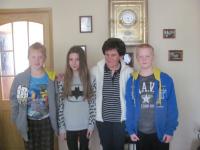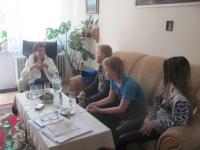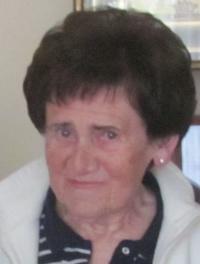Everyone should use their wits and a healthy dose of common sense

Download image
Kristýna Voráčová was born on 10 June 1936. Her mother was a German, so she experienced the post-war anti-German hostility very intensely. She still remembers the reluctance with which she participated in the children work teams that gathered books from abandoned German houses and took them to be recycled. She attended secondary school in Šumperk and found employment as a nurse in Vidnava in 1952. She wanted to continue her education while working, but when she was barred from learning French, she decided to move to Prague. After two years of searching she found an opening at Podolí Hospital. She also met her future husband in Prague, she married and gave birth to a daughter. In 1969 they all returned to the Jeseníky region, where the witness lives to this day.



